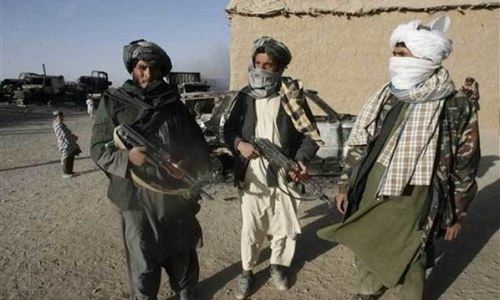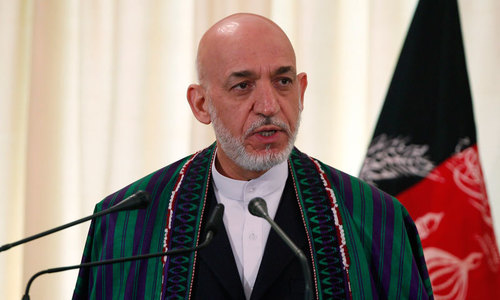PESHAWAR: The Afghan Taliban on Friday said they had agreed to reduce ‘military operations’ to provide safe environment for the withdrawal of foreign troops from Afghanistan and talks with the Americans were centered on fixing a date for signing the agreement.
“We have agreed to scale down military operations in days leading up to the signing of the peace agreement with the United States,” Taliban chief spokesman in Doha, Suhail Shaheen, told Dawn on phone.
“The purpose (of scaling down) is to provide safe environment to foreign forces to withdraw from Afghanistan,” he added.
“There is no agreement on ceasefire,” Shaheen insisted. “It’s a reduction in our military operations,” he said. “It is our prerogative to see how, when and where to scale down our military operations and it’s not going to be restricted to foreign forces only. The scaling down will be blanket and shall include all forces including state forces.”
Asked whether the reduction in attack would continue after the signing of the peace agreement, the Afghan Taliban spokesman said the day the agreement was signed other clauses contained in the document would come into force.
Agree to reduce operations to facilitate withdrawal of forces from Afghanistan
He did not elaborate on what those clauses would be, but added that the agreement would lead to commencement of an intra-Afghan dialogue including the Ashraf Ghani-led Kabul administration and negotiations for a nationwide ceasefire.
American negotiators are in the Qatari capital, Doha, for talks with the Afghan Taliban interlocutors. US chief negotiator Zalmkay Khalilzad had initiated the first round of peace talks with Afghan Taliban deputy head Mullah Abdul Ghani Akhund, also known by his nom de guerre Mullah Beradar, early this week.
The two sides have had three sessions and broke up for a recess on Friday to meet again possibly on Saturday. Sher Mohammad Abbas Stanakzai would head the Afghan Taliban team in the talks, Shaheen added.
“Talks are on,” the spokesman said. “We have an agreement,” he added. “Nothing else remains to be discussed as far as the terms of the agreement are concerned,” Shaheen said. “The draft agreement is ready.”
“The only issue that needs to be sorted out is the ‘date’ to sign the peace agreement,” he said. “It’s now a matter of days. We are optimistic that we may be able to sign the agreement latest by this month’s end.”
Afghan Presidential Palace has said it is unaware of any possible deal between the US and the Afghan Taliban but it has been cautioned about the prospects, saying it would have to be taken into confidence before an agreement is reached and signed.
Analysts say efforts to find a peaceful settlement have been geared up to ink an agreement before the onset of spring to pre-empt the usual Afghan Taliban “spring offensive” and help put an end to America’s longest war in history.
President Trump has pledged to bring the 18-year-long war in Afghanistan to an end that has cost the US $ 1.5 trillion and the lives of 2,400 of its soldiers, according to media reports.
Pakistan’s Foreign Minister Shah Mehmood Qureshi, who is in Washington to meet among others State Secretary Mike Pompeo, reiterated his earlier statement that he had seen willingness from the Afghan Taliban to reduce violence.
But he called upon the US to remain engaged in Afghanistan’s reconstruction after a possible peace agreement with the Afghan Taliban. “Don’t repeat the ‘80s,” he warned.
Worried about rising tension in the Middle East, Islamabad has been warning that the flare-up between Washington and Tehran could potentially hurt the prospects of peace in Afghanistan.
Mr Qureshi has already visited Tehran and Riyadh and is now in DC to meet his US counterpart.
Published in Dawn, January 18th, 2020
















































